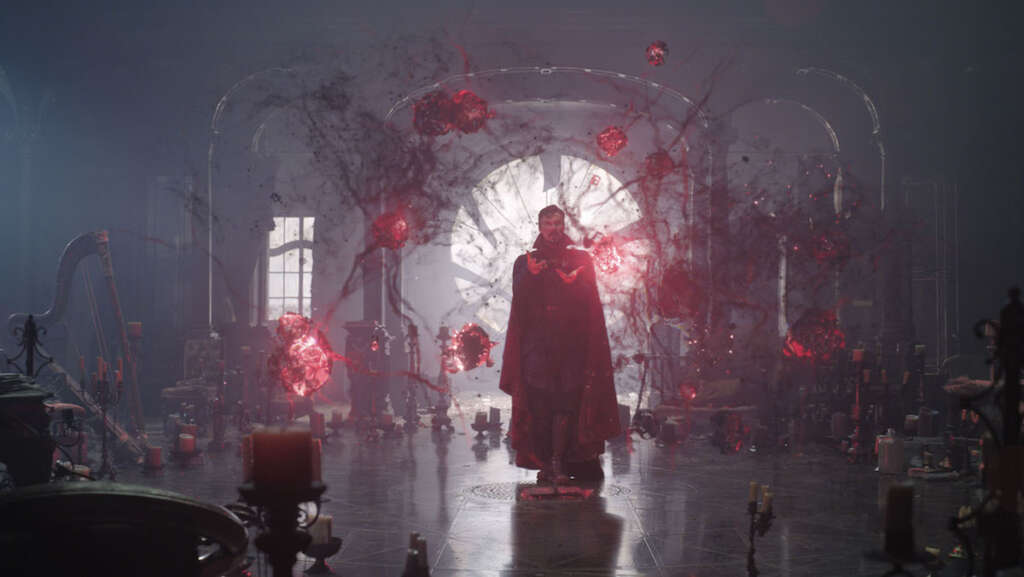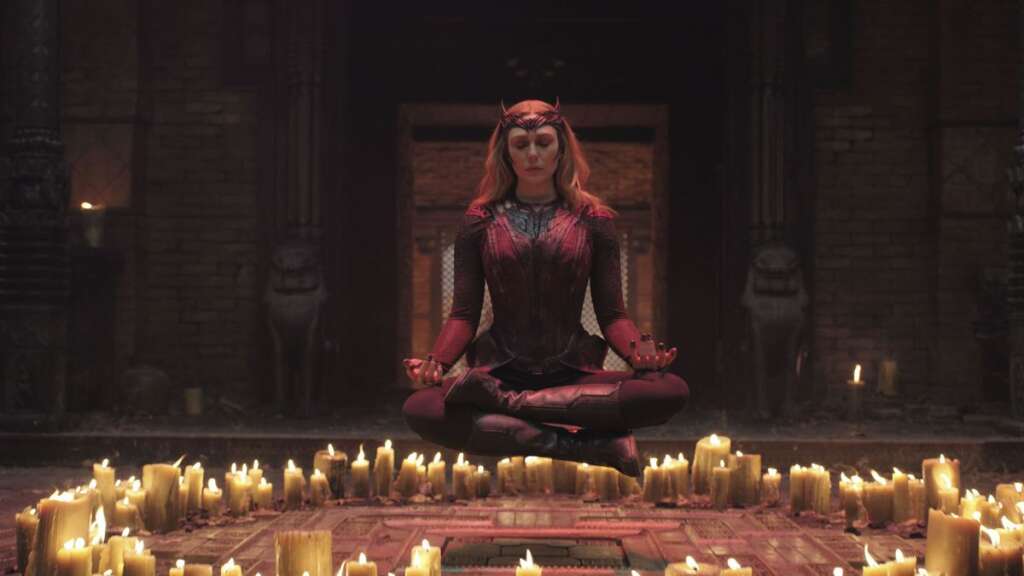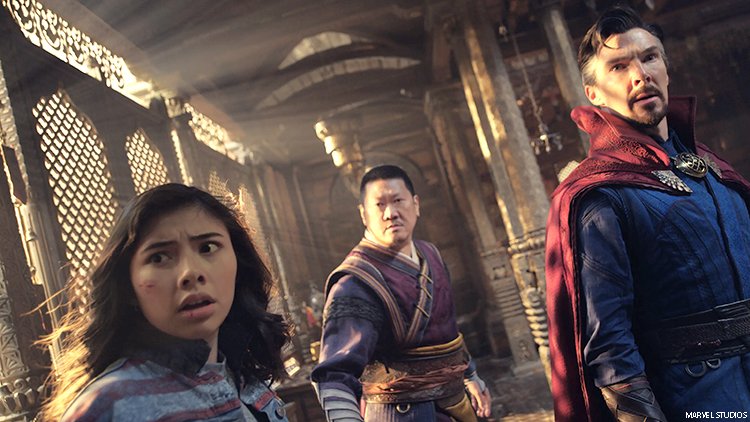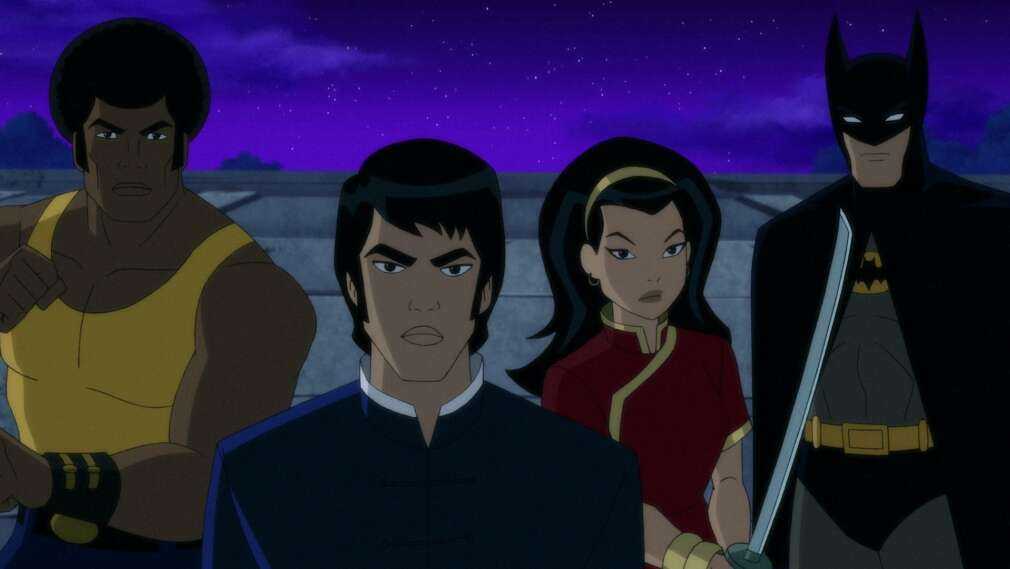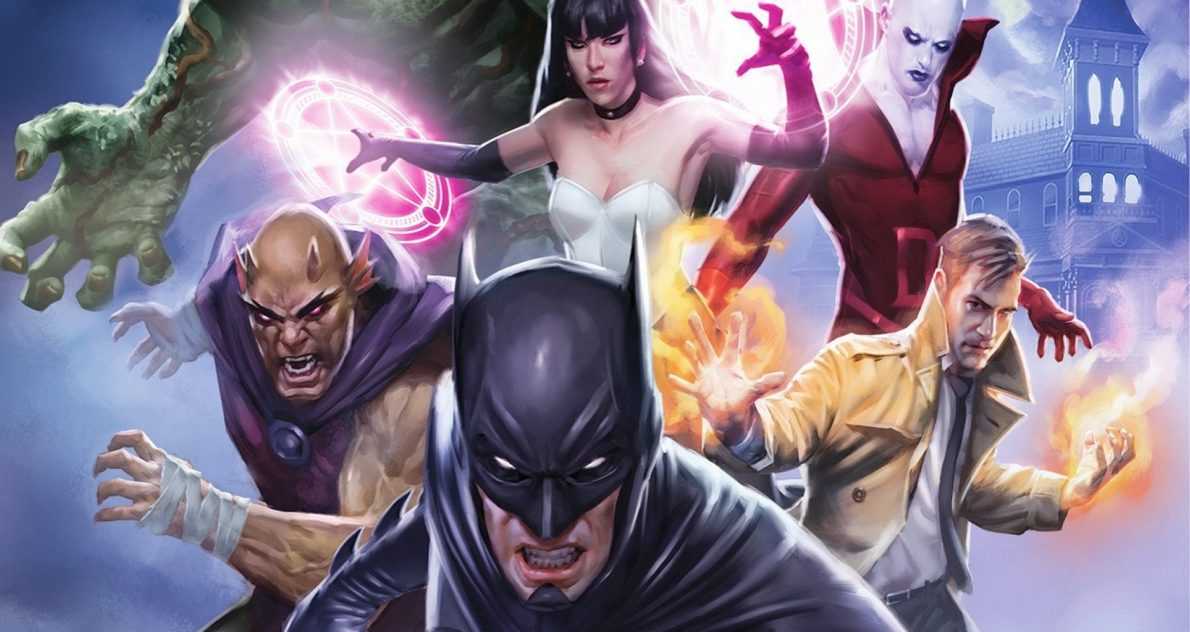Following the game changing events of Spider-Man: No Way Home, Marvel Studios is set to further explore the realms of the multiverse in the highly anticipated sequel – Doctor Strange in the Multiverse of Madness.
With horror legend Sam Raimi on board, we’ll shortly be journeying into the unknown with the help of mystical allies both old and new, traversing the mind-bending and dangerous alternate realities of the Multiverse to confront a mysterious new adversary
During the recent press tour for the movie, we were lucky enough to join President of Marvel Studios Kevin Feige, director Sam Raimi, writer Michael Waldron and stars Benedict Cumberbatch, Elizabeth Olsen, Benedict Wong, Xochitl Gomez for the virtual press conference. Here’s what we learnt from the event!
Benedict Cumberbatch on how Doctor Strange has evolved over the course of the MCU films and what to expect from this sequel:
He’s quite a maverick. He’s quite an outsider. He doesn’t immediately strike you as a leader, despite his prominence in the MCU at this moment. And that’s what makes him really interesting and conflicted, I think as a hero. It’s the humanity that keeps people coming back for more. And I think we see in the film an iteration of somebody who we’ve seen very omnipotent and very creative. And yet, we haven’t really understood what the cost of that is and what it is that’s fueling that. Both him as a person, but also within this mysterious realm of sorcery and magic.
So, this one is about examining that and finding his flaws, his faults, his humanity, as well as his strengths. And renewing and deepening our understanding of him. This film is more of a self-examination – of holding up a mirror to him through this incredible narrative structure we have of a Multiverse of other selves, than it is examining what his potential is to lead.
Elizabeth Olsen on how she approached this iteration of Wanda following WandaVision:
In the previous films before WandaVision, I took up a lane for storytelling that was more grounded in sincerity, love, loss, grief and with WandaVision, I got to become like, anything and everything. And really, really grow her into a woman. And leading her to accept that she is this mythic woman and that that is her destiny. And I hope that in this film people see that continuation of her acceptance of who she is. I feel like she has way more clarity now than ever in this film.
Elizabeth Olsen and Benedict Cumberbatch on who the more powerful Marvel character is:
Elizabeth Olsen: I think we all know who would win!
Benedict: Oh, I’ve got an idea – she’s pretty all-powerful, let’s be honest…I have humility, I can accept that!
Xochitl Gomez on what we can expect from America Chavez as she joins the MCU:
One thing that was so important to me was that this is a very adult movie. There’s lots of adults in it. It’s very heavy. And so I wanted to make sure that America still had that youthfulness and still had that, you know, fake it ’til you make it resilience. But when you’ve got some crazy stuff happening it’s a little hard. But I think one thing that really helps is that she is 14, which is younger than she was in any of the comics. So, I mean, that really helps, you know, in writing a new introduction which I think Michael Waldron did beautifully.
Director Sam Raimi on working with the MCU actors and the process of filming with a changing script:
The script would change oftentimes minutes before. And, you know, the actors are very creative and opinionated – they know their characters better than anybody. So, they’ll recognise in playing off the scene this is untrue or this feels like a manipulation or could it be more real. And we’d make changes in the moment trying to riff on that very good idea. And then when you’ve got great team members as a director, you really wanna pull the best of their ideas together and make something better than you could’ve made on your own.
And that’s exactly what working on this movie was like for me. Great actors, great ideas, a script that was constantly changing. But it was a very lively process. Not only that, but the other movies that we have storylines from, some were being made concurrently or had just finished. Like WandaVision had just finished or Spider-Man: No Way Home was also shooting. And our movie referenced those films. We had to have meetings with the director saying what does Dr. Strange know by the end of No Way Home? Does he even remember the multiverse? We had plenty of questions that Michael had to take into the script in the moment and take their changes and that change rippled through our movie.
Kevin Feige on how he keeps the MCU secrets so closely guarded and under wraps:
Well, the unfortunate truth is, you don’t always! Therefore you need to make sure that the experience itself works regardless of what has been spoiled or not. We still do as good a job as we can, and I think a lot of people are getting good at not spreading it. You know, if somebody steals something – please don’t spread it around because it just potentially lessens the experience for everyone else. But in a lot of ways, No Way Home showed that it did not lessen the experience.
So we will continue to do the best that we can, but the most important thing is, delivering the movie or the show that delivers regardless of what you know going in.
Benedict Wong on how Wong has changed and evolved as a character to what we see him now in the Multiverse of Madness:
I think when I first took the job six years ago, we moved away from the-the old source material – which was outdated – and we developed and crafted this no-nonsense midfield general librarian, you know, who’s continued through four or five of the movies and now is this no-nonsense Sorcerer Supreme. And I love where we’re going with this and the character progression – and we’ll see what unveils with this film.
Xochitl Gomez on who she took the biggest cue from when performing alongside the Marvel vets.
Well, I mean, all of these people are great, but in particular I did look at Lizzie – she’s just a powerful woman. I mean, especially me as a young girl, I would constantly look up to her, and I realised how much like five minutes before a scene that’s kind of difficult, she would kind of get in that moment. And I realized that, oh, well, if she’s doing it, I should probably do it too. And so, I did do that and it helped me. I just learned so much from her, and she doesn’t even know it.
Director Sam Raimi on bringing his beloved horror elements to the MCU:
It was great. When Kevin announced that this movie would be the first entry that Marvel wold be dipping their toe into the world of horror, I was thrilled that he called me to come in and talk to about the possibility of directing the picture. I was able to take those horror films that I made in my youth and what I had learned from them building suspense sequences, titillating the audience, gonna give them the scare now? No. Now, I’m gonna give it to them. That’s stuff I was able to apply in the spooky sequences in this film. So, it was very helpful.
Kevin Feige on America Chavez and the LGBTQ+ representation in the film:
We always say that these films represent the world as it is and the world outside your window. That aspect of America’s character is from the comics, so we always want to adapt them as well and as truthfully as we can. I think when people see the movie, much like in life, it is not any one thing that defines any one character. She’s a 14-year-old girl figuring out this very traumatic element of her life, which is not the LGBT issue. It is the fact that she keeps being tossed around the multiverse. Being truthful to that and showcasing that. That is not, what the movie is about, but it is an important part of the character she becomes in the comics. So we wanted to touch upon that.”
Doctor Strange: The Multiverse of Madness is out now in cinemas.

